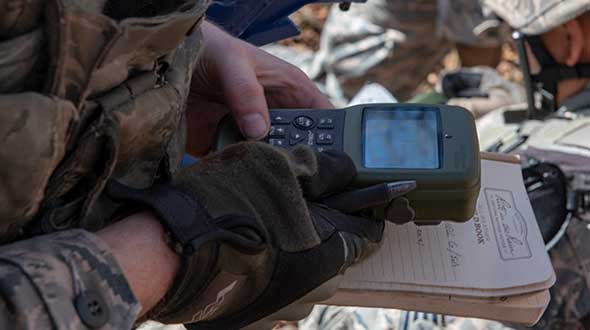 BAE systems has received a $ 247 million contract from the U.S. Space Forces Center for Space and Missile Systems to design and manufacture a next-generation advanced military GPS receiver and semiconductor.
BAE systems has received a $ 247 million contract from the U.S. Space Forces Center for Space and Missile Systems to design and manufacture a next-generation advanced military GPS receiver and semiconductor.
The technology will provide positioning, navigation and synchronization (PNT) capabilities to combat fighters so that they can perform missions in a challenging electromagnetic environment.
Increment of MGUE 2
The contract is related to The contract of the US Department of Defense in November for M-Code military GPS technology.
The Military GPS Consumer Equipment (MGUE) Increment 2 Miniature Serial Interface program will provide enhanced capabilities for military GPS applications of limited size and power, including precision-controlled ammunition and hand-held battery-powered devices.
The program will focus on the certification of an advanced application-specific integrated circuit (ASIC) and the development of an ultra-small low-power GPS module.
Both products will work with the next generation of military M-code signal technology, which provides reliable GPS data with anti-jamming and tampering capabilities to protect against e-war threats.
“This program enables us to further develop our core M-code technology to provide next-generation high-performance GPS capabilities,” said Greg Wilde, Director of Navigation and Sensor Systems at BAE Systems. “Our next-generation M-code receiver and ASIC will provide secure and reliable military GPS capabilities across a wider range of platforms.”
BAE Systems Precision Strike’s business has 45 years of military GPS experience and over 1.5 million GPS devices on over 280 platforms worldwide. The company currently manufactures M-code GPS receivers in a variety of form factors, including a low-power, small-format M-code solution.
Additional prototypes are being developed for ground, weapons and airborne applications, and the company’s M-code GPS products are available to US allies through foreign military sales.
Work on the program will take place at the company’s facility in Cedar Rapids, Iowa.
Characteristic image: An air man with the 374th Security Forces Squadron uses a defensive advanced GPS receiver (DAGR) to track the team’s current during field training in 2018 at Camp Fuji, Japan. (Photo: Senior Airman Matthew Gilmore / US Air Force)

